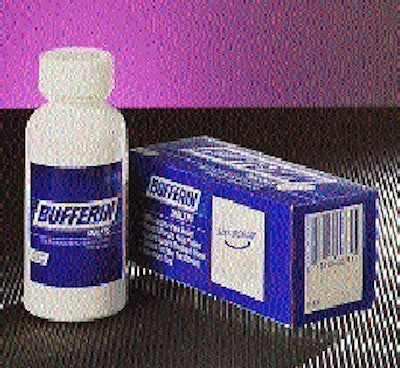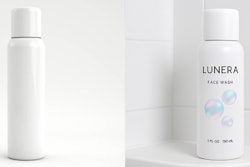
CPSC's response last month to those complaints will no doubt cheer consumers. But packagers and suppliers whose CR designs could be pulled off the market by the CPSC's action may not be so upbeat. What CPSC has done is to require most CR packages to undergo senior-adult use effectiveness testing (which in bureaucratese is to be known as "SAUE" testing) by a panel of up to 400 adults 60-75 years of age. The adult part of the PPPA testing protocol used to be handled by a panel of 100 adults 18-45 years old. The new testing requirements, admits the CPSC candidly, "will eliminate the currently-marketed child-resistant package designs that are most difficult for older persons, and others, to open." The CPSC has been formulating its new reg for some time and some packagers, notably Bristol-Myers Squibb, Princeton, NJ, and Procter & Gamble, Cincinnati, OH, didn't wait for the CPSC to offer elder-friendly CR packages. BM's Bufferin incorporates the FG Series push and turn CR closure from Sunbeam Plastics (Evansville, IN), and P&G's Aleve is topped by a Safety Squease(TM) cap it designed and the West Co. (POhoenixville, PA) produces. For now, metal cans and aerosols are exempt from the new SAUE protocol, although the Commission is likely to require these packages to pass elder-friendly tests sometime in the future. Calling the new rules "a gift to American families, especially to older persons and those of any age who have been frustrated by the difficulty of opening and using child-resistant caps on medicine or most household products," CPSC Chair Ann Brown stresses that the new PPPA test protocol is not meant merely to make CR packaging more convenient. "If adults leave caps off because they are too difficult to use," she says, "we do not achieve the purposes of child-resistant packaging. If the caps are easy to use, adults will use them as intended, and the result will be that children will less frequently have access to drugs or household products that can harm them." Under the new rules, sequential panels of 100 senior adults with the ability to open two NON-CR packages are first given five minutes to try to open a package being tested. Those who succeed are then given one minute to open "and (if appropriate) properly resecure the package." The seniors are tested sequentially in panels of 100, "until a statistically reliable pass/fail determination can be made or a total of 400 adults are tested." The CPSC is also changing some of the child panel testing requirements. The biggest change here is that CPSC will no longer require every package to be tested by a panel of 200 children. Instead, sequential panels of 50 children, up to a maximum of 200, can now be tested. Child-resistance scores (85% failure to open before a demonstration; 80% failure after a demo) remain unchanged. The new rules generally go into effect next January-one year after their appearance in the Federal Register, although some changes in the way children must be tested take effect this July.


























